32 start with P start with P


With A Peaceful Conquest, Cara Lea Burnidge presents the most detailed analysis yet of how Wilson’s religious beliefs affected his vision of American foreign policy, with repercussions that lasted into the Cold War and beyond. Framing Wilson’s intellectual development in relationship to the national religious landscape, and paying greater attention to the role of religion than in previous scholarship, Burnidge shows how Wilson’s blend of Southern evangelicalism and social Christianity became a central part of how America saw itself in the world, influencing seemingly secular policy decisions in subtle, lasting ways. Ultimately, Burnidge makes a case for Wilson’s religiosity as one of the key drivers of the emergence of the public conception of America’s unique, indispensable role in international relations.
As the presidential election cycle once again raises questions of America’s place in the world, A Peaceful Conquest offers a fascinating excavation of its little-known roots.
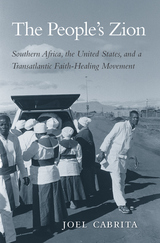
In The People’s Zion, Joel Cabrita tells the transatlantic story of Southern Africa’s largest popular religious movement, Zionism. It began in Zion City, a utopian community established in 1900 just north of Chicago. The Zionist church, which promoted faith healing, drew tens of thousands of marginalized Americans from across racial and class divides. It also sent missionaries abroad, particularly to Southern Africa, where its uplifting spiritualism and pan-racialism resonated with urban working-class whites and blacks.
Circulated throughout Southern Africa by Zion City’s missionaries and literature, Zionism thrived among white and black workers drawn to Johannesburg by the discovery of gold. As in Chicago, these early devotees of faith healing hoped for a color-blind society in which they could acquire equal status and purpose amid demoralizing social and economic circumstances. Defying segregation and later apartheid, black and white Zionists formed a uniquely cosmopolitan community that played a key role in remaking the racial politics of modern Southern Africa.
Connecting cities, regions, and societies usually considered in isolation, Cabrita shows how Zionists on either side of the Atlantic used the democratic resources of evangelical Christianity to stake out a place of belonging within rapidly-changing societies. In doing so, they laid claim to nothing less than the Kingdom of God. Today, the number of American Zionists is small, but thousands of independent Zionist churches counting millions of members still dot the Southern African landscape.
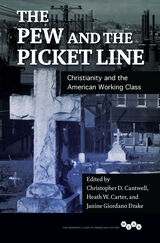

Is the "private" experience of religion counterproductive to engagement in public life? Does the "public" experience of religion contribute anything distinctive to civic engagement? Pews, Prayers, and Participation offers a fresh approach to key questions about what role religion plays in fostering civic responsibility in contemporary American society. Written by five prominent scholars of religion and politics, led by Calvin College's Corwin Smidt, the book brilliantly articulates how religion shapes participation in a range of civic activities—from behaviors (such as membership in voluntary associations, volunteering, and charitable contributions) to capacities (such as civic skills and knowledge), to virtues (such as law-abidingness, tolerance, and work ethic).
In the course of their study the authors examine whether an individual exhibits a diminished, a privatized, a public, or an integrated form of religious expression, based on the individual's level of participation in both the public (worship) or private (prayer) dimensions of religious life. They question whether the privatization of religious life is counterproductive to engagement in public life, and they show that religion does indeed play a significant role in fostering civic responsibility across each of its particular facets.
Pews, Prayers, and Participation is a bold and provocative clarion call to the continuing importance and changing nature of religion in American public life. It will be of particular interest to students and scholars of religion and politics, and culture and politics, as well as general readers with an interest in the impact of religion in the public sphere.
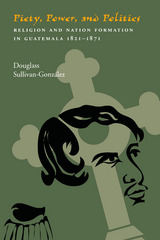
Douglass Sullivan Gonzalez examines the influence of religion on the development of nationalism in Guatemala during the period 1821-1871, focusing on the relationship between Rafael Carrera amd the Guatemalan Catholic Church. He illustrates the peculiar and fascinating blend of religious fervor, popular power, and caudillo politics that inspired a multiethnic and multiclass alliance to defend the Guatemalan nation in the mid-nineteenth century.
Led by the military strongman Rafael Carrera, an unlikely coalition of mestizos, Indians, and creoles (whites born in the Americas) overcame a devastating civil war in the late 1840s and withstood two threats (1851 and 1863) from neighboring Honduras and El Salvador that aimed at reintegrating conservative Guatemala into a liberal federation of Central American nations.
Sullivan-Gonzalez shows that religious discourse and ritual were crucial to the successful construction and defense of independent Guatemala. Sermons commemorating independence from Spain developed a covenantal theology that affirmed divine protection if the Guatemalan people embraced Catholicism. Sullivan-Gonzalez examines the extent to which this religious and nationalist discourse was popularly appropriated.
Recently opened archives of the Guatemalan Catholic Church revealed that the largely mestizo population of the central and eastern highlands responded favorably to the church’s message. Records indicate that Carrera depended upon the clerics’ ability to pacify the rebellious inhabitants during Guatemala’s civil war (1847-1851) and to rally them to Guatemala’s defense against foreign invaders. Though hostile to whites and mestizos, the majority indigenous population of the western highlands identified with Carrera as their liberator. Their admiration for and loyalty to Carrera allowed them a territory that far exceeded their own social space.
Though populist and antidemocratic, the historic legacy of the Carrera years is the Guatemalan nation. Sullivan-Gonzalez details how theological discourse, popular claims emerging from mestizo and Indian communities, and the caudillo’s ability to finesse his enemies enabled Carrera to bring together divergent and contradictory interests to bind many nations into one.
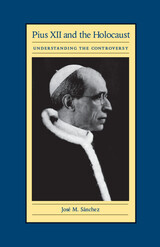


Politicizing Islam in Austria examines this anti-Muslim swerve in Austrian politics through a comprehensive analysis of government policies and regulations, as well as party and public discourses. In their innovative study, Hafez and Heinisch show how the far-right Austrian Freedom Party (FPÖ) adapted anti-Muslim discourse to their political purposes and how that discourse was then appropriated by the conservative center-right Austrian People’s Party (ÖVP). This reconfiguration of the political landscape prepared the way for a right-wing coalition government between conservatives and far-right actors that would subsequently institutionalize anti-Muslim political demands and change the shape of the civic conditions and public perceptions of Islam and the Muslim community in the republic.

For well over a century the Catholic Church has articulated clear positions on many issues of public concern, particularly economics, capital punishment, foreign affairs, sexual morality, and abortion. Yet the fact that some of the Church's positions do not mesh well with the platforms of either of the two major political parties in the U.S. may make it difficult for Americans to look to Catholic doctrine for political guidance. Scholars of religion and politics have long recognized the potential for clergy to play an important role in shaping the voting decisions and political attitudes of their congregations, yet these assumptions of political influence have gone largely untested and undemonstrated.
Politics in the Parish is the first empirical examination of the role Catholic clergy play in shaping the political views of their congregations. Gregory Allen Smith draws from recent scholarship on political communication, and the comprehensive Notre Dame Study of Parish Life, as well as case studies he conducted in nine parishes in the mid-Atlantic region, to investigate the extent to which and the circumstances under which Catholic priests are influential in shaping the politics of their parishioners.
Smith is able to verify that clergy do exercise political influence, but he makes clear that such influence is likely to be nuanced, limited in magnitude, and exercised indirectly by shaping parishioner religious attitudes that in turn affect political behavior. He shows that the messages that priests deliver vary widely, even radically, from parish to parish and priest to priest. Consequently, he warns that scholars should exercise caution when making any global assumptions about the political influence that Catholic clergy affect upon their congregations.
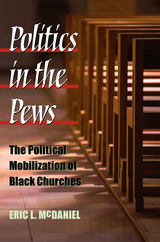
"Politics in the Pews probes the internal dynamics of political decision making within the Black church."
---William E. Nelson, Jr., Research Professor, Department of African American and African Studies, Ohio State University
As Eric McDaniel demonstrates in his study of Black congregations in the U.S., a church's activism results from complex negotiations between the pastor and the congregation. The church's traditions, its institutional organization, and its cultural traditions influence the choice to make politics part of the church's mission. The needs of the local community and opportunities to vote, lobby, campaign, or protest are also significant factors.
By probing the dynamics of churches as social groups, McDaniel opens new perspectives on civil rights history and the evangelical politics of the twenty-first century. Politics in the Pews contributes to a clearer understanding of the forces that motivate any organization, religious or otherwise, to engage in politics.
Eric L. McDaniel is Assistant Professor in the Department of Government at the University of Texas at Austin.

In our time, we require a religion, ethics, and politics adequate to confront the global crises we face. In our scientific era of “progress,” we might expect to look with confidence to the “scientific” disciplines of political science, sociology, and economics to solve the problems of our civilization. We might also look to the older disciplines of religion and ethics to determine our values and to tell us what we ought to do. But the sad truth is that the dominant paradigms, methods, and conclusions of the social sciences and humanities are inadequate to this task. We need a new “politics of compassion and transformation.”

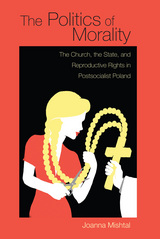
After the fall of the state socialist regime and the end of martial law in 1989, Polish society experienced both a sense of relief from the tyranny of Soviet control and an expectation that democracy would bring freedom. After this initial wave of enthusiasm, however, political forces that had lain concealed during the state socialist era began to emerge and establish a new religious-nationalist orthodoxy. While Solidarity garnered most of the credit for democratization in Poland, it had worked quietly with the Catholic Church, to which a large majority of Poles at least nominally adhered. As the church emerged as a political force in the Polish Sejm and Senate, it precipitated a rapid erosion of women’s reproductive rights, especially the right to abortion, which had been relatively well established under the former regime.
The Politics of Morality is an anthropological study of this expansion of power by the religious right and its effects on individual rights and social mores. It explores the contradictions of postsocialist democratization in Poland: an emerging democracy on one hand, and a declining tolerance for reproductive rights, women’s rights, and political and religious pluralism on the other. Yet, as this thoroughly researched study shows, women resist these strictures by pursuing abortion illegally, defying religious prohibitions on contraception, and organizing into advocacy groups. As struggles around reproductive rights continue in Poland, these resistances and unofficial practices reveal the sharp limits of religious form of governance.

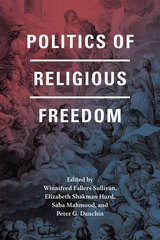
The fruits of the three-year Politics of Religious Freedom research project, the contributions to this volume unsettle the assumption—ubiquitous in policy circles—that religious freedom is a singular achievement, an easily understood state of affairs, and that the problem lies in its incomplete accomplishment. Taking a global perspective, the more than two dozen contributors delineate the different conceptions of religious freedom predominant in the world today, as well as their histories and social and political contexts. Together, the contributions make clear that the reasons for persecution are more varied and complex than is widely acknowledged, and that the indiscriminate promotion of a single legal and cultural tool meant to address conflict across a wide variety of cultures can have the perverse effect of exacerbating the problems that plague the communities cited as falling short.
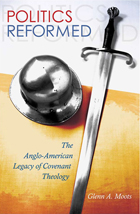

The Vatican’s dealings with the Weimar Republic and the Third Reich have long been swathed in myth and speculation. After almost seventy years, the crucial records for the years leading up to 1939 were finally opened to the public, revealing the bitter conflicts that raged behind the walls of the Holy See. Anti-Semites and philo-Semites, adroit diplomats and dogmatic fundamentalists, influential bishops and powerful cardinals argued passionately over the best way to contend with the intellectual and political currents of the modern age: liberalism, communism, fascism, and National Socialism. Hubert Wolf explains why a philo-Semitic association was dissolved even as anti-Semitism was condemned, how the Vatican concluded a concordat with the Third Reich in 1933, why Hitler’s Mein Kampf was never proscribed by the Church, and what factors surrounded the Pope’s silence on the persecution of the Jews.
In rich detail, Wolf presents astonishing findings from the recently opened Vatican archives—discoveries that clarify the relations between National Socialism and the Vatican. He illuminates the thinking of the popes, cardinals, and bishops who saw themselves in a historic struggle against evil. Never have the inner workings of the Vatican—its most important decisions and actions—been portrayed so fully and vividly.
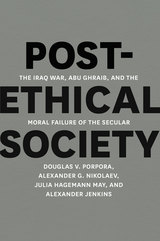
In this singular examination of the American discourse over war and torture, Douglas V. Porpora, Alexander Nikolaev, Julia Hagemann May, and Alexander Jenkins investigate the opinion pages of American newspapers, television commentary, and online discussion groups to offer the first empirical study of the national conversation about the 2003 invasion of Iraq and the revelations of prisoner abuse at Abu Ghraib a year later. Post-Ethical Society is not just another shot fired in the ongoing culture war between conservatives and liberals, but a pensive and ethically engaged reflection of America’s feelings about itself and our actions as a nation. And while many writers and commentators have opined about our moral place in the world, the vast amount of empirical data amassed in Post-Ethical Society sets it apart—and makes its findings that much more damning.
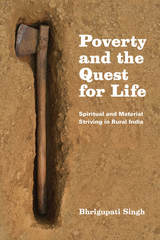
The Indian subdistrict of Shahabad, located in the dwindling forests of the southeastern tip of Rajasthan, is an area of extreme poverty. Beset by droughts and food shortages in recent years, it is the home of the Sahariyas, former bonded laborers, officially classified as Rajasthan’s only “primitive tribe.” From afar, we might consider this the bleakest of the bleak, but in Poverty and the Quest for Life, Bhrigupati Singh asks us to reconsider just what quality of life means. He shows how the Sahariyas conceive of aspiration, advancement, and vitality in both material and spiritual terms, and how such bridging can engender new possibilities of life.
Singh organizes his study around two themes: power and ethics, through which he explores a complex terrain of material and spiritual forces. Authority remains contested, whether in divine or human forms; the state is both despised and desired; high and low castes negotiate new ways of living together, in conflict but also cooperation; new gods move across rival social groups; animals and plants leave their tracks on human subjectivity and religiosity; and the potential for vitality persists even as natural resources steadily disappear. Studying this milieu, Singh offers new ways of thinking beyond the religion-secularism and nature-culture dichotomies, juxtaposing questions about quality of life with political theologies of sovereignty, neighborliness, and ethics, in the process painting a rich portrait of perseverance and fragility in contemporary rural India.
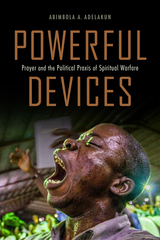

In the wake of the Clinton-Lewinsky scandal, the Christian Right expected major victories in the 1998 elections. Instead, many of its allies lost close contests, and the movement was seen as a liability in some high-profile campaigns. In the only in-depth study of the Christian Right's role in these races, leading scholars analyze the role of the movement in fourteen key states, from Maine to California, and address speculations that the movement is fading from the American political scene.
The book focuses on elections on the state and local levels, where the Christian Right is most influential, and it describes the movement's niche in some detail. Although each campaign described in the book had its unique characteristics, the editors have drawn some broad conclusions about the 1998 elections. While the movement was weak in the areas of candidate recruitment and fundraising, they say, the outcome may have also been related to external factors including a broader turnout of typically Democratic constituencies and the country's boredom with the scandal that conservatives had made the centerpiece of their campaign. Despite the setbacks of 1998, the contributors argue, the Christian Right continues to have an enormous influence on the political dialogue of the country.
Written from an unbiased, nonpartisan perspective, this volume sheds light on a topic that is too frequently mired in controversy.
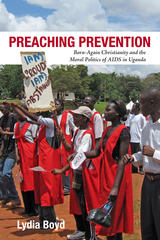
Preaching Prevention examines the controversial U.S. President’s Emergency Plan for AIDS Relief (PEPFAR) initiative to “abstain and be faithful” as a primary prevention strategy in Africa. This ethnography of the born-again Christians who led the new anti-AIDS push in Uganda provides insight into both what it means for foreign governments to “export” approaches to care and treatment and the ways communities respond to and repurpose such projects. By examining born-again Christians’ support of Uganda’s controversial 2009 Anti-Homosexuality Bill, the book’s final chapter explores the enduring tensions surrounding the message of personal accountability heralded by U.S. policy makers.
Preaching Prevention is the first to examine the cultural reception of PEPFAR in Africa. Lydia Boyd asks, What are the consequences when individual responsibility and autonomy are valorized in public health initiatives and those values are at odds with the existing cultural context? Her book investigates the cultures of the U.S. and Ugandan evangelical communities and how the flow of U.S.-directed monies influenced Ugandan discourses about sexuality and personal agency. It is a pioneering examination of a global health policy whose legacies are still unfolding.

¡Presente! develops a lived theology of nonviolence through an extended case study of the movement to close the School of the Americas (also known as the SOA or WHINSEC). Specifically,it analyzes how the presence of the dead—a presence proclaimed at the annual vigil of the School of the Americas Watch—shapes a distinctive, transnational, nonviolent movement. Kyle B.T. Lambelet argues that such a messianic affirmation need not devolve into violence or sectarianism and, in fact, generates practical reasoning.
By developing a messianic political theology in dialogue with the SOA Watch movement, Lambelet's work contributes to Christian ethics as he explores the political implications of the resurrection of the dead. This book contributes to studies of strategic nonviolence and civil resistance by demonstrating how religious and moral dynamics remain an essential part of such struggles.

Faith in progress is a characteristic we often associate with the Victorian era. Victorian intellectuals and free-thinkers who believed in progress and wrote history from a progressive point of view—men such as Leslie Stephen, John Morley, W. E. H. Lecky, and James Anthony Froude—are usually thought to have done so because they were optimistic about their own times. Their optimism has been seen as the result of a successful Liberal campaign for political reform in the sixties and seventies, carried out in alliance with religious dissenters—a campaign that removed religion from the arena of public debate.
Jeffrey Paul von Arx challenges this long-standing view of the Victorian intellectual aristocracy. He sees them as preoccupied with and even fearful of a religious resurgence throughout their careers, and demonstrates that their loss of confidence in contemporary liberalism began with their disillusionment over the effects of the Franchise Reform Act of 1867. He portrays their championing of the idea of progress as motivated not by optimism about the present, but by their desire to explain away and reverse if possible contemporary religious and political trends, such as the new mass politics in England and Ireland.
This is the first book to explore how pessimism could be the psychological basis for the Victorians’ progressive conception of history. Throughout, von Arx skillfully interweaves threads of religion, politics, and history, showing how ideas in one sphere cannot be understood without reference to the others.
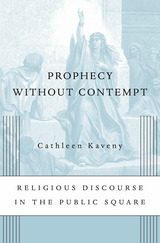
American culture warriors have plenty to argue about, but battles over such issues as abortion and torture have as much to do with rhetorical style as moral substance. Cathleen Kaveny reframes the debate about religion in the public square by focusing on a powerful stream of religious discourse in American political speech: the Biblical rhetoric of prophetic indictment.
“Important and path-breaking. The place of religious discourse in the American public square has received much attention for many years, but the role of prophetic indictment has been largely overlooked. Kaveny’s book not only opens a ‘new front’ in these debates, but starts the conversation with a rich analysis of the history and function of prophetic discourse.”
—Kathleen A. Brady, Commonweal
“A monumental achievement, and a much-needed addition to the academic and societal conversation about the role of religion in public life. In precise prose and with careful analysis, Kaveny challenges some of the leading theorists about public discourse and puts forward her own theories, all accompanied by a storyteller’s gift for anecdote and a philosopher’s talent for explication.”
—Michael Sean Winters, National Catholic Reporter
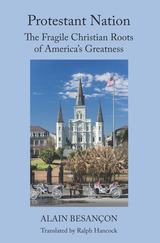
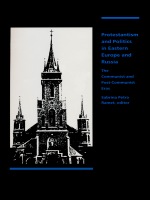
Based on extensive field research, including interviews with notable figures in the Protestant churches in the region, the essays in this volume address broad topics such as the church's involvment in environmentalism, pacifism, and other dissident movements, as well as issues particular to Russia, Poland, Czechoslovakia, East Germany, (1949–1989), Hungary, Yugoslavia (1945-1991), Bulgaria, and Romania. The final volume in the three-volume work "Christianity Under Stress," Protestantism and Politics in Eastern Europe and Russia will prove invaluable to anyone hoping to understand not only the workings of religion under Communism, but the historical and contemporary interactions of church and state in general.
Contributors. Paul Bock, Lawrence Klippenstein, Paul Mojzes, Earl A. Pope, Joseph Pungur, Sabrina Petra Ramet, Walter Sawatsky, N. Gerald Shenk, Gerd Stricker, Sape A. Zylstra
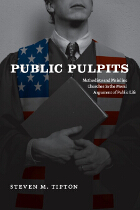
Documenting a wide range of reactions to two radically different events—the invasion of Iraq and the creation of the faith-based initiatives program—Tipton charts the new terrain of religious and moral argument under the Bush administration from Pat Robertson to Jim Wallis. He then turns to the case of the United Methodist Church, of which President Bush is a member, to uncover the twentieth-century history of their political advocacy, culminating in current threats to split the Church between liberal peace-and-justice activists and crusaders for evangelical renewal. Public Pulpits balances the firsthand drama of this internal account with a meditative exploration of the wider social impact that mainline churches have had in a time of diverging fortunes and diminished dreams of progress.
An eminently fair-minded and ethically astute analysis of how churches keep moral issues alive in politics, Public Pulpits delves deep into mainline Protestant efforts to enlarge civic conscience and cast clearer light on the commonweal and offers a masterly overview of public religion in America.
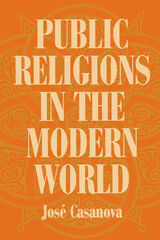
During the 1980s, religious traditions around the world, from Islamic fundamentalism to Catholic liberation theology, began making their way, often forcefully, out of the private sphere and into public life, causing the "deprivatization" of religion in contemporary life. No longer content merely to administer pastoral care to individual souls, religious institutions are challenging dominant political and social forces, raising questions about the claims of entities such as nations and markets to be "value neutral", and straining the traditional connections of private and public morality.
Casanova looks at five cases from two religious traditions (Catholicism and Protestantism) in four countries (Spain, Poland, Brazil, and the United States). These cases challenge postwar—and indeed post-Enlightenment—assumptions about the role of modernity and secularization in religious movements throughout the world.
This book expands our understanding of the increasingly significant role religion plays in the ongoing construction of the modern world.
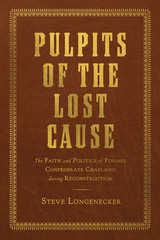
Pulpits of the Lost Cause: The Faith and Politics of Former Confederate Chaplains during Reconstruction is the first in-depth study of former chaplains that juxtaposes their religion and politics, thereby revealing important insights about the Lost Cause movement. Steve Longenecker demonstrates that while some former chaplains vigorously defended the Lost Cause and were predictably conservative in the pulpit, embracing orthodoxy and resisting religious innovation, others were unexpectedly progressive and advocated on behalf of evolution, theological liberalism, and modern biblical criticism.
Former Confederate chaplains embodied both the distinctive white, Southern, regional identity and the variation within it. Most were theologically conservative and Lost Cause racists. But as with the larger South, variation abounded. The Lost Cause, which Longenecker interprets as a broad popular movement with numerous versions, meant different things to different chaplains. It ranged from diehard-ism to tempered sectional forgiveness to full reconciliation to a harmless once-a-year Decoration Day ritual.
This volume probes the careers of ten former chaplains, including their childhoods, wartime experiences, Lost Cause personas, and theologies, making use of manuscripts and published sermons as well as newspapers, diaries, memoirs, denominational periodicals, letters, and the books they themselves produced. In theology, many former chaplains were predictably conservative, while others were unexpectedly broad-minded and advocated evolution, theological liberalism, and modern Biblical criticism. One former chaplain became a social-climbing Harvard progressive. Another wrote innovative, liberal theology read by European scholars. Yet another espoused racial equality, at least in theory if not full practice. Additionally, former chaplains often exhibited the fundamental human trait of compartmentalization, most notably by extolling the past as they celebrated the Lost Cause while simultaneously looking to the future as religious progressives or New South boosters. The stereotypical preacher of the Lost Cause—a gray-clad Bible thumper—existed sufficiently to create the image but hardly enough to be universally accurate.
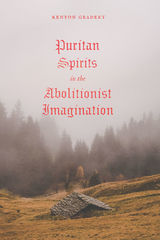
Puritan Spirits in the Abolitionist Imagination reveals how the leaders of the nineteenth-century abolitionist movement—from landmark figures like Ralph Waldo Emerson to scores of lesser-known writers and orators—drew upon the Puritan tradition to shape their politics and personae. In a striking instance of selective memory, reimagined aspects of Puritan history proved to be potent catalysts for abolitionist minds. Black writers lauded slave rebels as new Puritan soldiers, female antislavery militias in Kansas were cast as modern Pilgrims, and a direct lineage of radical democracy was traced from these early New Englanders through the American and French Revolutions to the abolitionist movement, deemed a “Second Reformation” by some. Kenyon Gradert recovers a striking influence on abolitionism and recasts our understanding of puritanism, often seen as a strictly conservative ideology, averse to the worldly rebellion demanded by abolitionists.
READERS
Browse our collection.
PUBLISHERS
See BiblioVault's publisher services.
STUDENT SERVICES
Files for college accessibility offices.
UChicago Accessibility Resources
home | accessibility | search | about | contact us
BiblioVault ® 2001 - 2024
The University of Chicago Press









